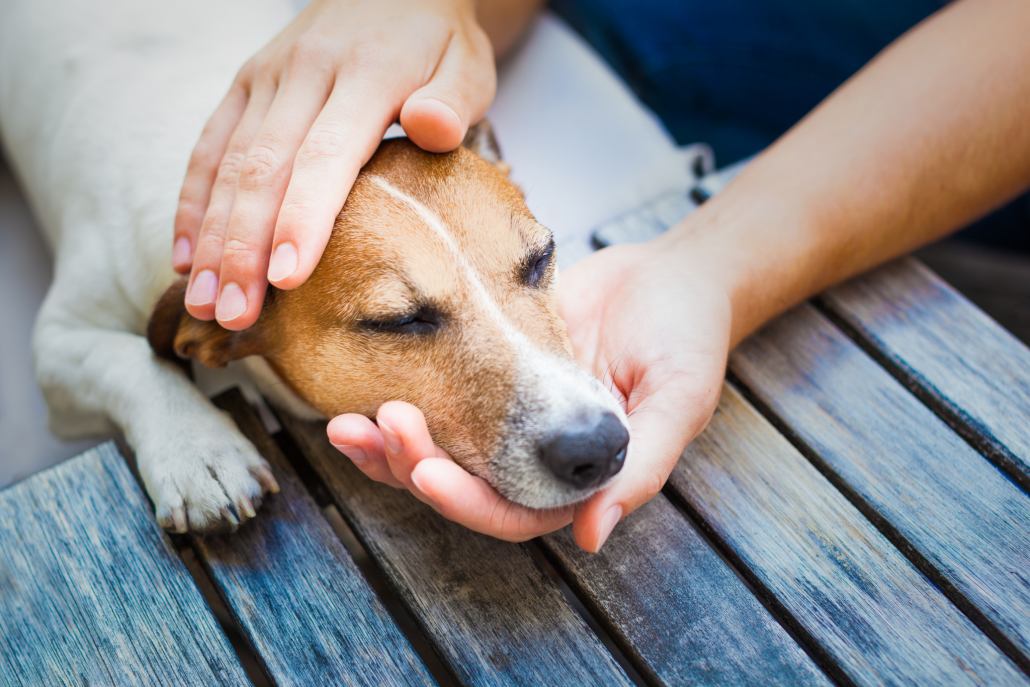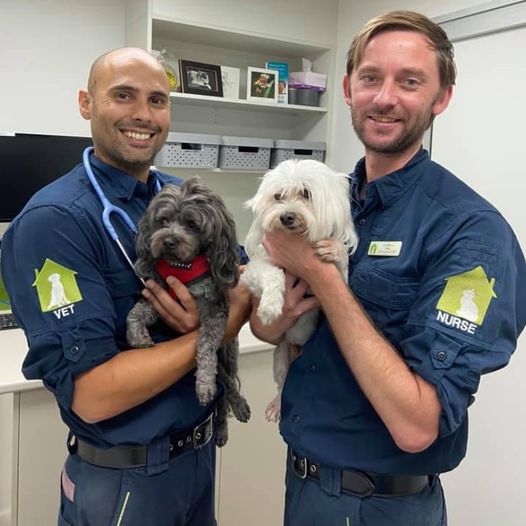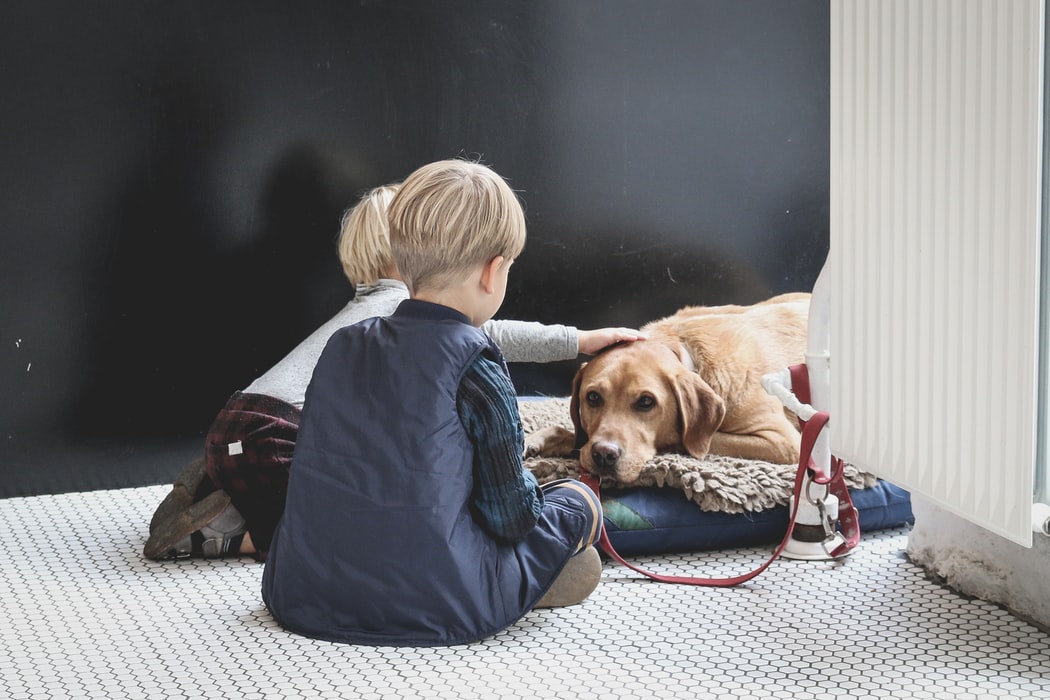Taking The Panic Out Of A Crisis
We all want our beloved companions to be happy and healthy at all times. Unfortunately, every pet owner will experience a crisis at some point. Emergencies can happen at any time and can range from injury and sudden illness to allergic reactions and everything in between.
Emergencies can be a stressful and frightening experience for both pet and owner. However, it is important to know what to do and how to stay calm to ensure you are able to get the best care for your pet.
But, how do you stay calm, knowing that your furry friend is in pain? Fear and anxiety are normal reactions in an emergency, but they don’t have to take over and turn a stressful situation into an overwhelming one.
There are a number of tips to help you in a veterinary emergency. In this post, we outline the top tips to help you stay calm and get the care your pet needs.

What Is A Veterinary Pet Emergency?
While some emergencies, like seizures or accidents, are obvious. However, some emergencies are so subtle even the most conscientious pet owner can miss the signs.
You know your pet best, so you are in the best position to notice changes in their behaviour, appetite or energy levels that could indicate they are not feeling well.
If you are ever unsure whether your pet is experiencing an emergency, it is always best to err on the side of caution and call your veterinarian. Not all emergencies are life-threatening, it will help your veterinarian to have a sense of what is happening with your pet so that they can best advise you on the next steps of their care.
Common pet emergencies include:
Wounds:
Deep cuts, punctures, abrasions, lacerations and bleeding that doesn’t stop within 5 minutes should be considered an emergency.
Trauma:
If your pet has been attacked by another animal or hit by a car or other object, you should visit your vet as soon as possible. Even if there are no visible injuries, internal injuries and bleeding can be life-threatening.
Breathing:
If your companion is experiencing difficulty breathing or is coughing or choking uncontrollably, this is an emergency.
Vomiting and Diarrhoea:
It is imperative that you see a vet if your pet is excessively vomiting or having diarrhoea. If left untreated can lead to dehydration and other serious health problems.
Labour Difficulties:
If your pet is having trouble delivering their young or is experiencing retained afterbirth, this is an emergency.

Steps To Take In A Pet Emergency
When you notice your pet behaving strangely or exhibiting any of the above symptoms, it is important to act quickly. Here are the steps you should take:
Stay Calm:
The most important thing to remember when dealing with a pet emergency is to stay calm. While this may difficult, your pets have the ability to sense your emotions and will pick up on your anxiety. This can make an already difficult situation worse.
If you are feeling panicked or anxious, take a few deep breaths and try to focus on the task at hand. This will help you to think clearly and make decisions quickly and efficiently.
Assess The Problem:
Once you have calmed yourself, take a look at your pet and try to assess the problem. This will help you to determine how serious the situation is and what steps need to be taken next.
A broken bone or severe injury is easy to see, whereas a sick pet may be difficult to diagnose. If you are unsure what is wrong with your pet, keep a close eye on their symptoms and behaviour so you are able to give your vet as much information as possible.
Respond At Home:
Depending on the emergency, there are a number of things that can be done at home before taking your pet to the vet.
For example, if your pet has a wound, you should try and stop the bleeding by applying pressure to the area directly over it. If they are experiencing difficulty breathing or excessive vomiting, take their temperature rectally and follow any instructions given by your veterinarian.
Call Your Vet:
After assessing your pet and doing what you can at home, get in touch with your pet’s veterinarian. They will be able to tell you what steps need to be taken next and which treatment is most appropriate based on the situation.
It’s always better to be safe than sorry, so if you have any concerns about your pet’s health, don’t hesitate to get in touch with their vet soon as possible.
Calm Your Pet:
No matter the emergency, your pet may be anxious and agitated. This makes them susceptible to biting and aggression. To help soothe your pet and keep them calm, try to offer comfort by speaking in a soft voice or gently stroking their fur. Be sure not to overstimulate them.
If your dog is aggressive, slowly approach and muzzle them before attempting anything else. In the case of feline companions, it is best to keep them in a carrier or a towel to avoid being scratched or bitten.
Ask For Help:
It is best to have help else when dealing with a pet emergency, as it can be difficult to manage everything on your own. If possible, ask a friend or family member to come and help you, or at least stay on the phone with you until the situation is under control.
Be Prepared:
One of the best things you can do to be prepared for a pet emergency is to have a first-aid kit on hand. This will help you to deal with minor injuries and ailments at home and give you peace of mind knowing that you are prepared in case of an emergency.

Let Us Help You With Your Pet Emergency
Pet emergencies can be stressful and frightening, but it is important to stay calm in order to make the best decisions for your pet.
If you notice any of the symptoms above or believe that your pet is experiencing a medical emergency, take immediate action by assessing the problem, responding at home, and calling your vet as soon as possible. Listen to what the vet has to say and don’t be afraid to ask as many questions as you need to in order to take the correct next steps for your pet.
If you need help dealing with a pet emergency, or simply have questions about your pet’s health in general, don’t hesitate to get in touch with The House Call Vet. Our emergency vets are here to help you and your pet through any tough situation. We are knowledgeable, caring and compassionate and are devoted to improving the lives of pets across Brisbane.

